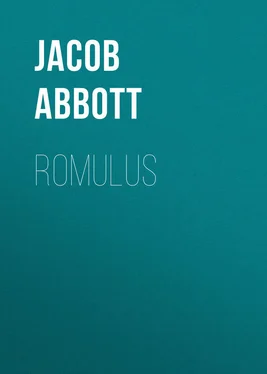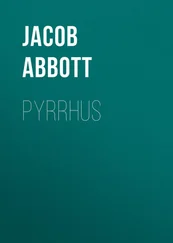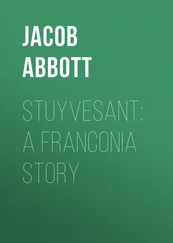Jacob Abbott - Romulus
Здесь есть возможность читать онлайн «Jacob Abbott - Romulus» — ознакомительный отрывок электронной книги совершенно бесплатно, а после прочтения отрывка купить полную версию. В некоторых случаях можно слушать аудио, скачать через торрент в формате fb2 и присутствует краткое содержание. Жанр: foreign_antique, foreign_prose, Историческая проза, на английском языке. Описание произведения, (предисловие) а так же отзывы посетителей доступны на портале библиотеки ЛибКат.
- Название:Romulus
- Автор:
- Жанр:
- Год:неизвестен
- ISBN:нет данных
- Рейтинг книги:3 / 5. Голосов: 1
-
Избранное:Добавить в избранное
- Отзывы:
-
Ваша оценка:
- 60
- 1
- 2
- 3
- 4
- 5
Romulus: краткое содержание, описание и аннотация
Предлагаем к чтению аннотацию, описание, краткое содержание или предисловие (зависит от того, что написал сам автор книги «Romulus»). Если вы не нашли необходимую информацию о книге — напишите в комментариях, мы постараемся отыскать её.
Romulus — читать онлайн ознакомительный отрывок
Ниже представлен текст книги, разбитый по страницам. Система сохранения места последней прочитанной страницы, позволяет с удобством читать онлайн бесплатно книгу «Romulus», без необходимости каждый раз заново искать на чём Вы остановились. Поставьте закладку, и сможете в любой момент перейти на страницу, на которой закончили чтение.
Интервал:
Закладка:
Æneas replied, – retorting with vauntings on his side no less spirited and energetic than those which Achilles had expressed. He gave a long account of his pedigree, and of his various claims to lofty consideration. He, however, said, in conclusion, that it was idle and useless for them to waste their time in such a war of words, and so he hurled his spear at Achilles with all his force, as a token of the commencement of the battle.
The battle begun.
Narrow escape.
The spear struck the shield of Achilles, and impinged upon it with such force that it penetrated through two of the plates of metal which composed the shield, and reached the central plate of gold, where the force with which it had been thrown being spent, it was arrested and fell to the ground. Achilles then exerting his utmost strength threw his spear in return. Æneas crouched down to avoid the shock of the weapon, holding his shield at the same time above his head, and bracing himself with all his force against the approaching concussion. The spear struck the shield near the upper edge of it, as it was held in Æneas's hands. It passed directly through the plates of which the shield was composed, and then continuing its course, it glided down just over Æneas's back, and planted itself deep in the ground behind him, and stood there quivering. Æneas crept out from beneath it with a look of horror.
Sudden termination of the combat.
Immediately after throwing his spear, and perceiving that it had failed of its intended effect, Achilles drew his sword and rushed forward to engage Æneas, hand to hand. Æneas himself recovering in an instant from the consternation which his narrow escape from impalement had awakened, seized an enormous stone, heavier, as Homer represents it, than any two ordinary men could lift, and was about to hurl it at his advancing foe, when suddenly the whole combat was terminated by a very unexpected interposition. It seems that the various gods and goddesses, from their celestial abodes among the summits of Olympus, had assembled in invisible forms to witness this combat – some sympathizing with and upholding one of the combatants, and some the other. Neptune was on Æneas's side; and accordingly when he saw how imminent the danger was which threatened Æneas, when Achilles came rushing upon him with his uplifted sword, he at once resolved to interfere. He immediately rushed, himself, between the combatants. He brought a sudden and supernatural mist over the scene, such as the God of the Sea has always at his command; and this mist at once concealed Æneas from Achilles's view. Neptune drew the spear out of the ground, and released it too from the shield which remained still pinned down by it; and then threw the spear down at Achilles's feet. He next seized Æneas, and lifting him high above the ground he bore him away in an invisible form over the heads of soldiers and horsemen that had been drawn up in long lines around the field of combat. When the mist passed away Achilles saw his spear lying at his feet, and on looking around him found that his enemy was gone.
The tales of the Æneid.
Such are the marvelous tales which were told by the ancient narrators, of the prowess and exploits of Æneas under the walls of Troy, and of the interpositions which were put forth to save him in moments of desperate danger, by beings supernatural and divine. These tales were in those days believed as sober history. That which was marvelous and philosophically incredible in them, was sacredly sheltered from question by mingling itself with the prevailing principles of religious faith. The tales were thus believed, and handed down traditionally from generation to generation, and admired and loved by all who heard and repeated them, partly on account of their romantic and poetical beauty, and partly on account of the sublime and sacred revelations which they contained, in respect to the divinities of the spiritual world.
Chapter IV.
The Destruction of Troy.
B.C. 1200
Termination of the siege of Troy.
After the final conquest and destruction of Troy, Æneas, in the course of his wanderings, stopped, it was said, at Carthage, on his way to Italy, and there, according to ancient story, he gave the following account of the circumstances attending the capture and the sacking of the city, and his own escape from the scene.
Appearances observed by the besieged.
One day, after the war had been continued with various success for a long period of time, the sentinels on the walls and towers of the city began to observe extraordinary movements in the camp of the besiegers, which seemed to indicate preparations for breaking up the camp and going away. Tents were struck. Men were busy passing to and fro, arranging arms and military stores, as if for transportation. A fleet of ships was drawn up along the shore, which was not far distant, and a great scene of activity manifested itself upon the bank, indicating an approaching embarkation. In a word, the tidings soon spread throughout the city, that the Greeks had at length become weary of the protracted contest, and were making preparations to withdraw from the field. These proceedings were watched, of course, with great interest from the walls of the city, and at length the inhabitants, to their inexpressible joy, found their anticipations and hopes, as they thought, fully realized. The camp of the Greeks was gradually broken up, and at last entirely abandoned. The various bodies of troops were drawn off one by one to the shore, where they were embarked on board the ships, and then sailed away. As soon as this result was made sure, the Trojans threw open the gates of the city, and came out in throngs, – soldiers and citizens, men, women and children together, – to explore the abandoned encampment, and to rejoice over the departure of their terrible enemies.
The wooden horse.
Its probable size.
The first thing which attracted their attention was an immense wooden horse, which stood upon the ground that the Greek encampment had occupied. The Trojans immediately gathered, one and all, around the monster, full of wonder and curiosity. Æneas, in narrating the story, says that the image was as large as a mountain; but, as he afterward relates that the people drew it on wheels within the walls of the city, and especially as he represents them as attaching the ropes for this purpose to the neck of the image, instead of to its fore-legs, which would have furnished the only proper points of attachment if the effigy had been of any very extraordinary size, he must have had a very small mountain in mind in making the comparison. Or, which is perhaps more probable, he used the term only in a vague metaphorical sense, as we do now when we speak of the waves of the ocean as running mountain high, when it is well ascertained that the crests of the billows, even in the most violent and most protracted storms, never rise more than twenty feet above the general level.
Various opinions in respect to the disposal of it.
At all events, the image was large enough to excite the wonder of all the beholders. The Trojan people gathered around it, wholly unable to understand for what purpose the Greeks could have constructed such a monster, to leave behind them on their departure from Troy. After the first emotions of astonishment and wonder which the spectacle awakened had somewhat subsided, there followed a consultation in respect to the disposal which was to be made of the prodigy. The opinions on this point were very various. One commander was disposed to consider the image a sacred prize, and recommended that they should convey it into the city, and deposit it in the citadel, as a trophy of victory. Another, dissenting decidedly from this counsel, said that he strongly suspected some latent treachery, and he proposed to build a fire under the body of the monster, and burn the image itself and all contrivances for mischief which might be contained in it, together. A third recommended that they should hew it open, and see for themselves what there might be within. One of the Trojan leaders named Laocoon, who, just at this juncture, came to the spot, remonstrated loudly and earnestly against having any thing to do with so mysterious and suspicious a prize, and, by way of expressing the strong animosity which he felt toward it, he hurled his spear with all his force against the monster's side. The spear stood trembling in the wood, producing a deep hollow sound by the concussion.
Читать дальшеИнтервал:
Закладка:
Похожие книги на «Romulus»
Представляем Вашему вниманию похожие книги на «Romulus» списком для выбора. Мы отобрали схожую по названию и смыслу литературу в надежде предоставить читателям больше вариантов отыскать новые, интересные, ещё непрочитанные произведения.
Обсуждение, отзывы о книге «Romulus» и просто собственные мнения читателей. Оставьте ваши комментарии, напишите, что Вы думаете о произведении, его смысле или главных героях. Укажите что конкретно понравилось, а что нет, и почему Вы так считаете.












